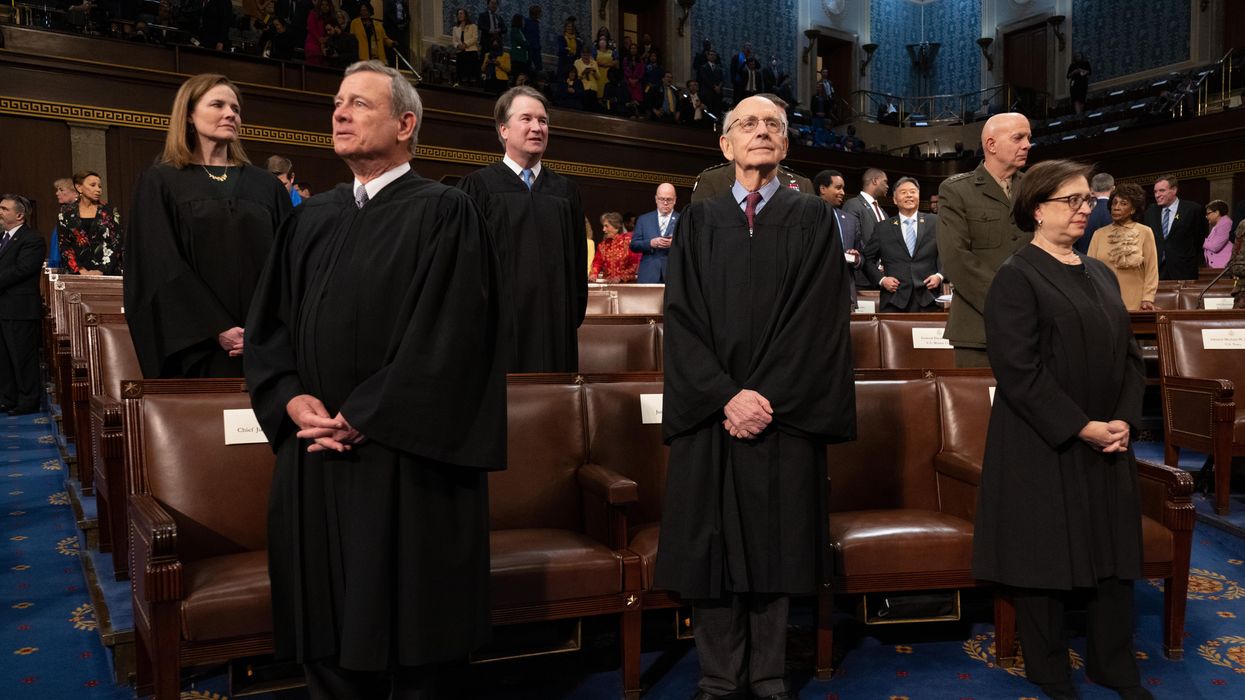The recent leak of a draft opinion that would overturn Roe v. Wade has sparked discussion about changes to the Supreme Court’s operations and structure.
The idea drawing the most attention is expanding the court beyond nine members. People on the left say an expansion is necessary to rebalance the court after Republican presidents and senators have ensured a conservative majority for years to come. The right considers “court packing” a political ploy that would damage the institution.
But there are other potential reforms that advocates suggest would improve government transparency, reduce partisanship and strengthen the Supreme Court.
Term limits
The Framers determined Supreme Court justices “shall hold their Offices during good Behaviour,” which was determined to mean may serve for life if they so choose. By removing justices from the election process, in theory, their selection would be separated from the political process.
However, as the confirmation process has become politicized and even a significant portion of presidential campaigns, some observers have advocated establishing term limits for justices.
A leading proposal calls for justices to serve 18-year terms. Under that plan, justices who complete their terms become “senior justices” who could serve on lower courts and occasionally fill in at the top court.
Gabe Roth, executive director of Fix the Courts, explained the proposal in an op-ed for The Fulcrum:
The elegance of the 18-year plan is that it allows each president to nominate two of the nine justices per four-year term, with no exceptions. In the case of an unexpected vacancy — because of death or medical emergency, say — a senior justice would fill in until the expiration of the term of the departed justice. For example, when [Antonin] Scalia died four years ago, the court would not have been reduced to eight justices; rather, the most recently retired justice, John Paul Stevens, would have taken his place until the next justice was confirmed.
Cameras in the courtroom
C-SPAN began broadcasting live congressional proceedings in 1979, but nothing similar has ever been tried in the Supreme Court. Same-day audio recordings of oral arguments are made available by the court, but the United States is a video-centric nation (not just TV, but now with YouTube, Tik Tok and more), and reformers believe live video would make court proceedings more accessible to the American public.
Opponents counter that live video could negatively impact court proceedings because justices might play to the camera. (Some people have argued that C-SPAN has made Congress worse because lawmakers may be inclined to plan their remarks around soundbites rather than reasoned debate and collaboration.)
Many of the current justices expressed interest in, if not outright support for, cameras in their courtroom when they were up for confirmation. Since then, some have changed their minds.
Here’s Clarence Thomas during his 1991 confirmation hearings:
'I have no objection beyond a concern that the cameras be as unobtrusive as possible...It's good for the American public to see what's going on in there.'
But by 2006 his opinion had shifted:
'It runs the risk of undermining the manner in which we consider the cases. Certainly it will change our proceedings. And I don't think for the better.'
Code of ethics
The executive branch, including the White House, as the Office of Government Ethics. The House and Senate each have their own ethics committees (as well as the independent Office of Congressional Ethics for the House). And the judicial branch follows the Code of Conduct of United States Judges … except those rules do not apply to the Supreme Court.
Reform advocates argue that an ethics code should be created for the justices to protect against improper behavior.
Fix the Courts, an organization devoted to nonpartisan reforms to the federal courts, see this as a critical component of its plan, writing on its website:
“Research compiled from Fix the Court points out that while none of the justices has committed a removal offense, all nine of them are culpable of various ethical oversights, from leaving assets off their annual financial disclosure reports to speaking at partisan fundraisers to ruling on cases despite credible conflicts of interest.”
A number of bills have been introduced in Congress to create an ethics code for the Supreme Court, but most of them have not progressed. However, the For the People Act, which passed the House before getting blocked by the filibuster in the Senate, would direct the Judicial Conference of the United States to craft an ethics code that includes the Supreme Court.




















Trump & Hegseth gave Mark Kelly a huge 2028 gift